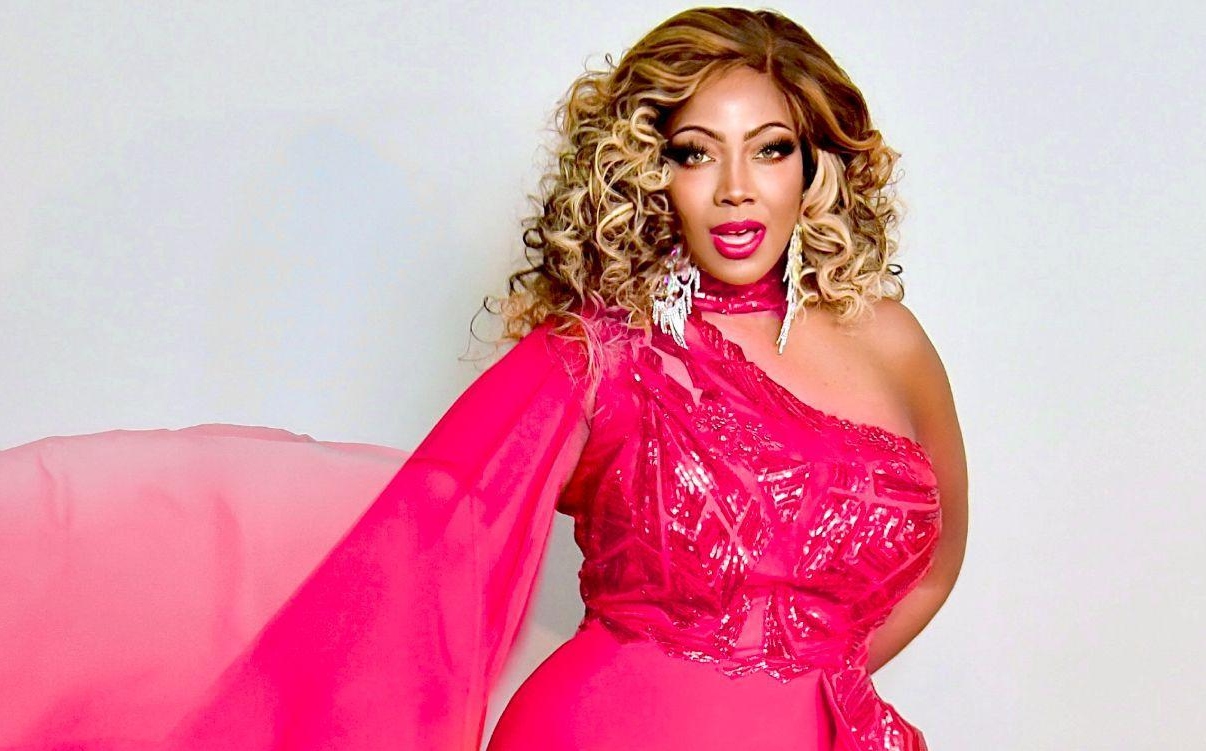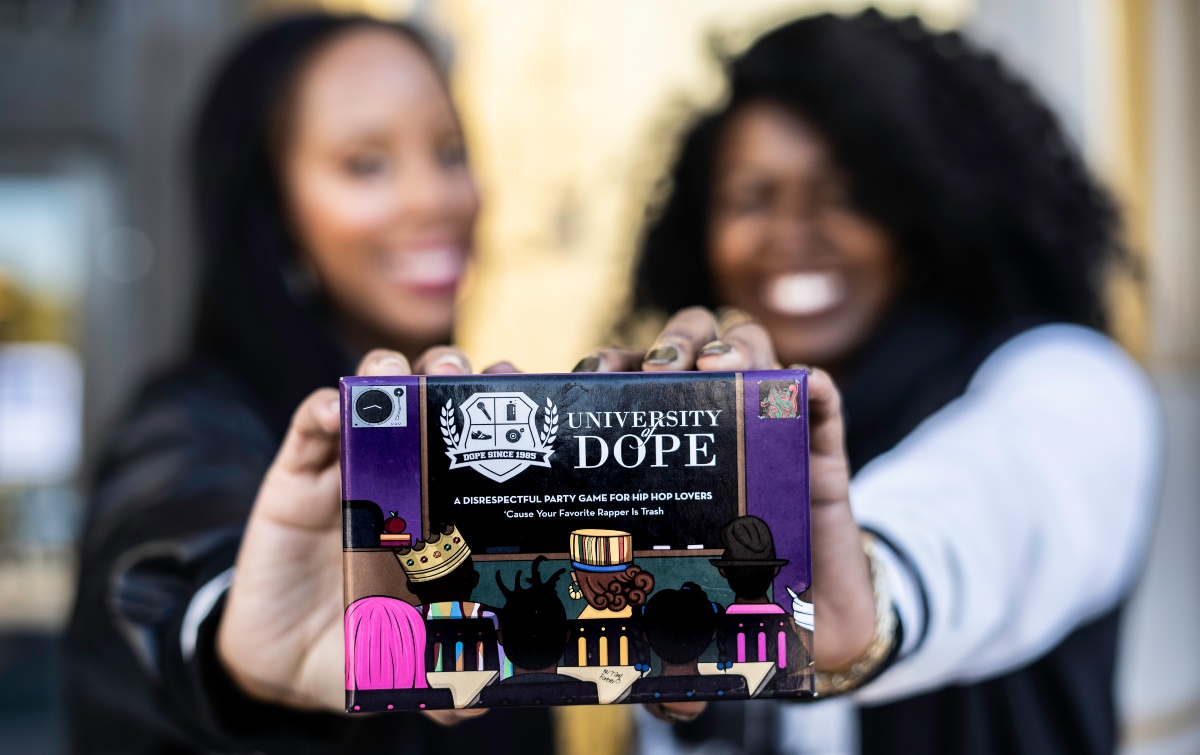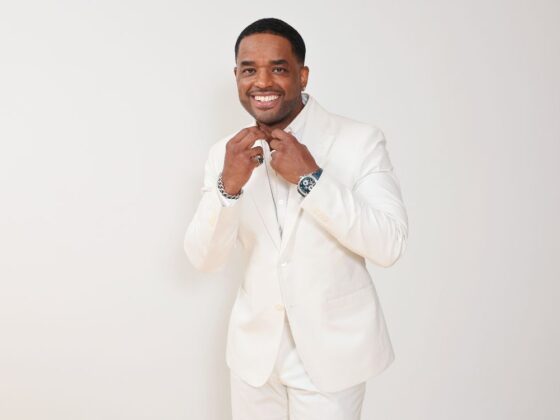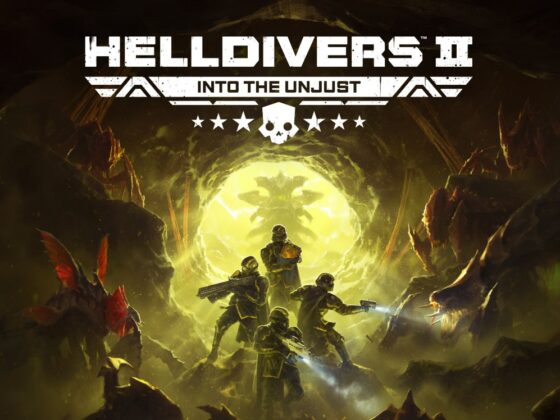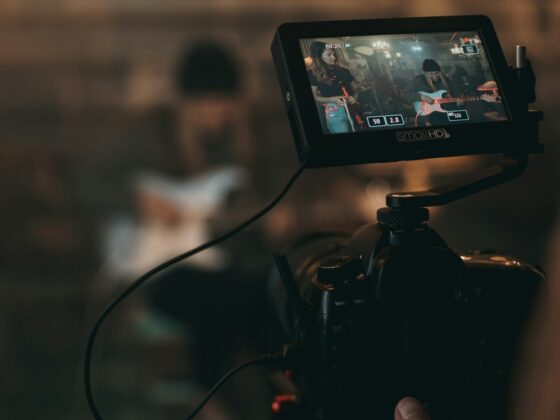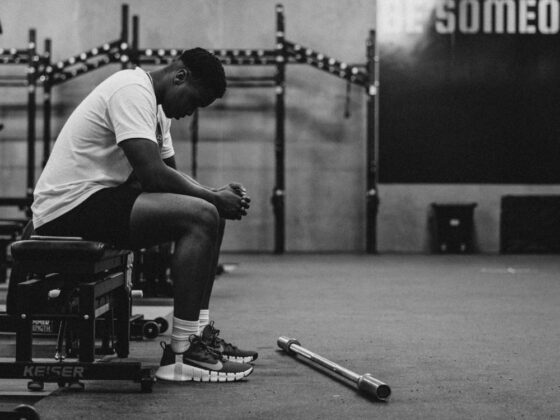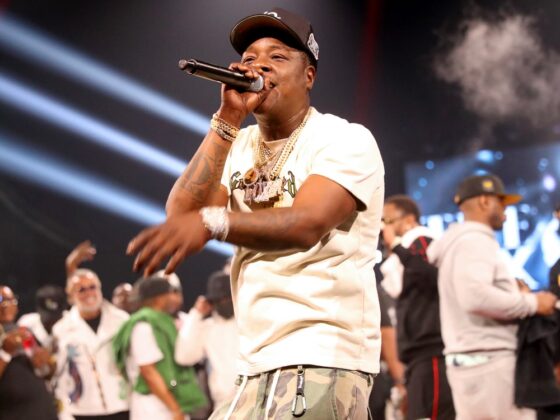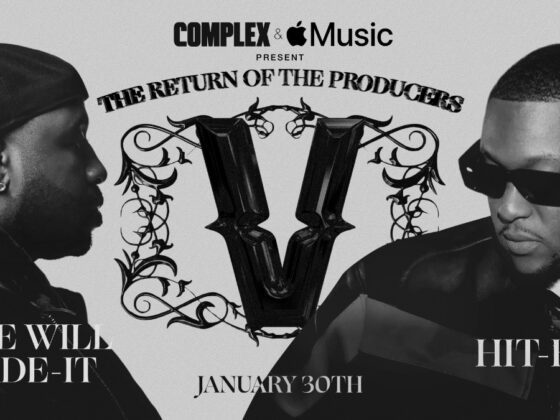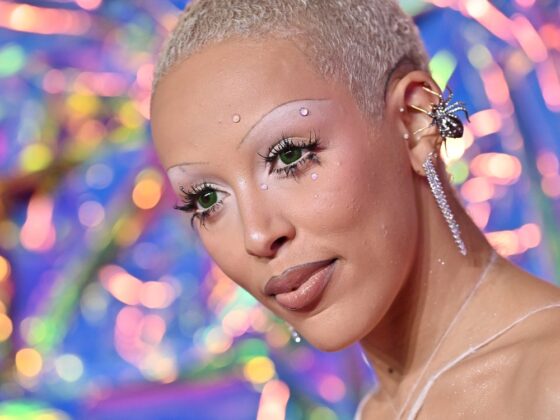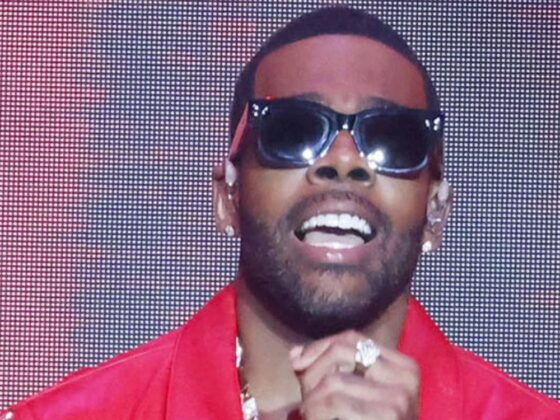Tale of the Tape Documentary Creators Share Anecdotes On New Project
Our Malik K. Buie & Kim Osorio Interview
The mixtape has always been a seminal and integral part of the culture of Hop-Hop. A staple of the DJ, one of the original elements of Hip-Hop, the mixtape may have lost its luster some with this most recent generation, but it still means so much to Hip-Hop and what the genre has become.
Two of the biggest names in culture of Hip-Hop, Malik K. Buie, and Kimberly Osorio, teamed up to create a time capsule of sorts, highlighting the mixtape, diving into the root of it and the evolution. The end result is a documentary that visualizes the story of the mixtape in a way that we have never seen before.
Directed by Malik K. Buie and executive produced by Buie, DJ Envy and Kim Osorio, Tale Of The Tape: How The Mixtape Revolutionized Hip-Hop was a labor of love, with production spanning from 2012 – 2022. It includes exclusive footage, and interviews from mixtape legends like Kid Capri, DJ Clue and DJ Drama, among many others. Some of the never before seen footage includes performances from J. Cole and Kendrick Lamar.
STR8 BANGAZ crafted the documentary’s captivating original score.
For those unfamiliar with the team behind the documentary, Malik K. Buie, Kim Osorio, and DJ Envy were the perfect people to take this one. Malik is the founder of Red Summer TV, a film director, executive producer, and innovative content creator from Brooklyn, New York. Red Summer TV clients include MTV, Def Jam, Complex, BET, among others. RS has contributed to projects including: The Message (BET), NAS: Time is Illmatic, BET 30-JAY Z, Chris Brown.
Kim Osorio is a Hip-Hop historian and one of the renowned creators in the culture over the last few decades. She is notably the first ever editor-in-chief for The Source magazine. She served as the editor-at-large at BET.com for six years, appeared on VH1’s The Gossip Game, and more recently has transitioned to script writing for television. She also holds a a Juris Doctorate from New York Law School. She has literally never been anything to play with!
DJ Envy of course is one-third of The Breakfast Club team.
Tale of the Tape is available and streaming on Prime Video, Spectrum On-Demand, and Verizon.
Watch the Tale of the Tape documentary trailer below:
Malik K. Buie & Kim Osorio Interview
Parlé Mag: Let’s just get right into the documentary. Let’s talk about the creative process first. How did you even decide that this was something that needed to be done and that you were gonna be the one to do it?
Malik K. Buie: Alright, so I’ll start out here. I’m a storyteller. producer, director, and been in the Hip-Hop space for a very long time. I have a love for music. I don’t know any person that doesn’t have a brother, cousin, uncle that’s not a DJ. Who doesn’t love the DJ, right? And you know, mixtapes were a big part of it, has always been a big part of Hip-Hop since I was younger. Kid Capri, Kid Capri was like getting your hands on a gold bar from Fort Knox, you know. And through my work a bit later, working with different artists, working with different DJs, the mixtape was always a prevalent part of their success. It was always their starting point most times, and as a storyteller I wanted to showcase that!
Parlé Mag: Okay, I didn’t start with y’all credits, I mean I feel like both of your names kind of ring bells and that’s the easy part. But when you were deciding to craft this story–and I guess it was, it was, it started with you Malik. So how did you decide who needed to be part of this? Who were the, the executive producers, who were the people you had to talk to?
Malik K. Buie: Well, when it came to artists that we wanted to talk to, one was, you know, you go after the biggest legends, right? You go after Brucie B, you go after, Ron G, you talk to K. Capri, you know, I think of Clue and Envy and those guys, we’re like peers, like the same age range, and a lot of friends in common even before meeting. But, you know, to be able to tell that complete story, honestly, that’s where Kim came in. You know, Kim’s pedigree, everything that she brings to Hip-Hop and the culture, it just made perfect sense. So, I’m glad I didn’t have to like beg her to like please please (laughs). Because I know she saw the value in this, you know, and I’ll let her kind of like, you know, speak from there.
Kim Osorio: Definitely. So, Malik and I worked together for many years before this doc. And I think in this business, right, you know, relationships are our currency. You’ve often heard that. So we had a really good working relationship. We had a flow in terms of me, what I do on the writing side, and what he does on the directing side. So with that, when this project came up, it was sort of like a no-brainer because we’ve got so many things in the works together, whether they go to certain networks or, you know, we decide let’s kind of put our brains together and work on this. We choose projects that we’re passionate about and we collaborate on those projects and this was one, because of our love for mixtape culture, that was easy for us to say yeah let’s definitely do this.
Watch the full interview with Malik K. Buie and Kim Osorio below:
Parlé Mag: Okay, okay. Let’s talk favorite mixtapes. I think before we can even get into everything for real, right? Like what were your favorite mixtapes coming up? What were some mixtapes that to this day still stick out and are like just unforgettable?
Malik K. Buie: Well, for me, my favorite mixtape is Doo Wop ’95 Live. A lot of times our favorite song, album, artists, etc., is normally like around, whatever we feel is like one of the greatest times of our life, it kind of like takes us back to that space. You know, at that time I was a student at Morgan State University, you know, with the parties we had, this DJ comes out, that DJ comes out, and honestly that’s where I met Envy at the first time, coming through Morgan State. But that mixtape, to me it was monumental. You had the biggest artist all on there. And, you know, at this point—Doo Wop to me is one of the best, he can rap, like he can spit! Doo Wop, Bounce Squad, Unique, Snaglepuss, they’re all amazing. And, you know, you have that and then mixed with, you know, Gangsta Guru and Fat Joe and Raekwon, and all those guys on there. You know, that one to me, it just, that was it.
Kim Osorio: You know, if you ask me when was the last time I even put a mixtape in, and listened to a mixtape? I can’t even remember. It was like over 15 years ago, but I’ve always been a fan of the Blend Tape. And I hate picking favorites. Especially because I love Doo Wop, and he’s from the Bronx. But I was really, really big on Kid Capri. And if you remember, I think they even, you know, these mix tape DJs, they were very heavy in the battling of it all. What we’re seeing today, this is nothing new, right? Rap beef, it’s just that we haven’t seen it in a long time. And I remember they used to battle on tapes. And so I forgot the tape that I am thinking of, but it was a very, very big Kid Capri tape. Malik, you should help me out here…
Malik K. Buie: What, 52 beats?
Kim Osorio: Is it 52 beats or like 50 MCs?
Malik K. Buie: Well, Kid Capri is 52 beats. That’s number one. That’s what most DJs— that’s their favorite.
Kim Osorio: So there you go. But also, you know, I love the Ron G tapes. I remember I used to work at—this is like one of those tidbits of information that people don’t know. People are like, you used to work there? I used to work at Milbank on 118th Street. And if you’re familiar, it’s Children’s Aid Society. It was one of my first jobs. I was a cheerleading coach and a counselor there. And some of my former cheerleaders are actually in their 40s, so that just goes to show you how old I am. But we used to use mixtapes to choreograph their dances, right, because of the blends and the beats, and it just kind of was this flowing, sort of never-ending music. And I think what we see today, even in building playlists, really is us as fans of the music, curating it in the way that the mixtape DJs did it in our day.
Malik K. Buie: For sure. you know, off of the battle thing. years ago at Morgan State there was a TTC Timberland Entertainment party with Ron G versus DJ S&S and we had them in separate rooms, and based on who you like most or what you was hearing is how you gravitated, but it you know they still showed us a lot of love, and respect, and camaraderie, which was dope, but yet the battle thing with the DJs has been going on.
Parlé Mag: You’re looking at about at least 20 years of that golden era of mixtapes. What was kind of the hardest thing about getting it done, but making sure you included as many people as possible?
Malik K. Buie: You know, when it comes to doing any project, talent wrangling can be…uh… it’s a challenge at times. we set out to talk to as many people as we could. We were very fortunate to get Brucie B. We were very fortunate to get Kid Capri. You know some of the other dj’s weren’t available due to personal schedules, or health stuff to be honest, but you know we go into this saying you know what we’re going to make we’re going to tell the best story possible even if a person is not available for an interview, we can still tell the story through archival footage, and through other avenues and whatnot. And I think we did a really, really good job. And it was important that we were able to get some mixtapes that Brucie did, like original ones, because him doing tapes at the rooftop and doing, you know, duplicating one at a time, in real time, you know. That’s a painstaking thing. So to be able to get our hands on that for the project was gold.
Kim Osorio: I just want to add, because Malik so graciously said that it was challenging and there are challenges when you do this, but let’s just keep it a hundred. It ain’t easy to get people to sit down for an interview these days. I think the value in this is now that it is out there, when we go in to get more people to do a part two, or a different sort of version of anything that we’re working on it’s here to say, ‘okay, look this was Tale of the Tape. We did the best job we could do with the story, with the interviews we had, and I think we did a great job! But the story continues, and so we’ll be able to go in there and get more people to sit down. I mean, you know how it is when you’re trying to get an interview set. People don’t want to come outside unless they are promoting their own thing, and it’s understandable. I’m not knocking anybody. That’s understandable. Im not knocking anybody. Its understandable. You know, time and energy, I think, from people, you’re taking a lot. But when you’re working on something that you’re passionate about. A lot of people do see the value in that and understand like us telling these stories are very important. So we’re very thankful for the people that participated in the doc.
Parlé Mag: It’s hard getting people to come outside, even worse post pandemic. I know that post pandemic hustle is different! But it’s also, you know, the mixtape game is different and its changed a lot for young folks. They might not even know what a mixtape is. Yes, we’ve had mixtapes in the last few years, but they’re not what we know as mixtapes. So what were you hoping that the younger viewer got from this documentary?
Malik K. Buie: I felt that it was important that younger folks, and younger DJs as well, were able to kind of, you know, get a real history lesson as to what their DJing forefathers did. The crowd work that they laid, you know, even though Clue, Envy and all those guys, they look pretty young, they’ve been in this game 20 plus years and were able to, I think we did a good job of showcasing how every DJ, in a linear perspective was able to build off of the last one, and add their thing to it, but also take this genre of Hip-Hop a little bit further. Move the needle each time, from Brucie to Kid Capri to SNS to Clue to Who Kid. And I wanted people to be able to watch this and say, wow, this is not just really dope and really entertaining, but, you know, learn some stuff.
Parlé Mag: Why do you think, and both of you, I know streaming is probably culprit number one, but why do you think mixtapes and the love for the DJ might not be what it used to be?
Kim Osorio: I think the definition as we know it, of mixtapes has changed. And I think that’s one of the reasons why we decided to start with the Kendricks and the J. Coles to kind of give today’s listener more context as to where they are. But for us, I just feel like, we’re tasked with telling these stories, but the younger generation, they have no real concept of what the history is. So if we don’t get it out and we don’t kind of document it, it’s not going to live on, right? DJing, I think, is a part of the history, the foundation. We used to talk about Hip-Hop in terms of elements. I remember that, and I Googled something recently for a project I was on where I was like, wait, it’s more elements of Hip-Hop all of a sudden. It started with four, right? It was like, oh, its DJing, break dancing? You know, and those were the original elements, and I remember that’s how we defined it. And these days, there’s so many different offshoots of Hip-Hop. You can’t even really define it as like the original element. So you gotta understand the impact that the DJ has had on the culture. Cause we don’t know with technology changing what that’s gonna morph into if anything.
Malik K. Buie: Right, right. Yeah, you know, it’s like, a few years ago. I was told that, you know Rap Caviar, was like the modern day mixtape, you know, which was like a playlist on Spotify that– Shout out to Carl– that artists were like dying to get on, you know what I mean? And so it gave us more, even more, of a spark to make sure this was finished here because, you know, that wasn’t it. Like that’s so far from what it is.
Parlé Mag: I’m only bringing this up because Kim kind of gave me the window. And it’s part of a conversation I had recently, because you talked about Hip-Hop culture. And the question, especially with everything else that’s going on, we’re not going to get into the beef at all… But what are your thoughts on Hip-Hop culture being synonymous with black culture? Should it be synonymous or is it synonymous?
Malik K. Buie: I think it is synonymous. I think it’s synonymous with black and brown culture. And I mean personally, I don’t have a problem with it. Let’s be real like, you know, it started out as a voice for the voiceless, but showcasing itself in a very artistic way and I think it’s still you know, it’s like that even now. And I think that the best artists, whether it’s Kendrick, whether it’s Cole, whether you think it’s Drake, etc. are the ones that are able to express themselves, and express multiple points of view of what culturally Hip-Hop is.
Kim Osorio: I would definitely say it’s synonymous. I think that… It’s very interesting because you see how far Hip-Hop has come. So it’s our responsibility to be able to keep that right, and be able to tell these stories and let people know what the history is and where the culture started. Because listen, I’m guilty… my favorite thing to do right now. I just did it today–this is so politically incorrect–is finding Instagram clips of white folk breaking down the Kendrick and Drake beef. I don’t know why I think it’s funny, but it’s like a thing on social media. So when I see that, I’m like, wow. And it’s like one of them I sent to my friends today was a 70 year old white woman and she was explaining it. And it was like a whole skit about breaking down the beef. But just seeing that I’m like, this culture has become so, it’s beyond pop culture. It’s like in people’s homes, in their kitchens, in the suburbs. So it’s just grown so much, and so much out of what the inception of it was. That’s why when you asked that question, I was like, oh, that’s a layered question. I don’t think I can answer that in one sentence, right? But that’s why we have to do our duty in telling these stories. Because they telling them on Instagram in the kitchen by 70 year-old white women. And it’s funny. So it’s spreading that way. That’s what’s happening right now. Social media, just so y’all know.
Parlé Mag: Before I get into what do you have coming up next or any other projects you’re working on, because we’ve been talking about the elements, I want to say that breakdancing will be part of the Olympics this year. Any thoughts on doing something for that?
Malik K. Buie: You know, it’s funny because one of me and Kim’s first times working together and we did an interview with Crazy Legs. I don’t even remember where we were. We were together. I don’t have anything lined up yet, but I will. I’m working on some pitches, and on doing some stuff with breakdancing, not just breakdancing, but also double dutch.
Parlé Mag: Okay, double dutch, yes.
Malik K. Buie: Because it’s part of the Olympics now.
Kim Osorio: My sister used to jump double dutch. I used to go to all the competitions. You’re really dating us here. I think that we have a lot of projects in the works. You know, I’ve seen a lot of people referencing the sport in the Olympics now. I don’t know too much about it. Like I’m still doing my research about how it’s, you know, and I’m watching his [Crazy Legs] social media, like if Legs puts it on his social media, then that’s how I’m educated on it these things. But I think it’s an amazing accomplishment, to be able to showcase the art form and the culture in that way, on that type of scale.
We have a lot of projects coming up, but I think we’ve got to prioritize them and get them done, right? For me, I’ve been mostly doing a lot in the reality space. A lot of people know that that’s where my main lane is, but we’re transitioning over to tell more of these stories in the core of Hip-Hop. And Hip-Hop definitely runs the space that I’m in right now when it comes to reality. So that’s just, that’s just another way of showing how influential the culture has become. I’m literally getting handpicked for projects for networks you wouldn’t even think and you know I get on a lot of calls. They don’t know a lot about the culture, but they want in. Okay!
Malik K. Buie: And there will be another version, series, iteration of Tale of the Tape. There will be more.
Parlé Mag: You wanna give more detail? Are we talking a series, or are we talking…?
Malik K. Buie: I mean, you can think of Hip-Hop evolution, but with mixtapes. It’s gonna be… The ink isn’t dry on everything yet, so we don’t want to put that out there. But there will be more iterations, like a series.
Parlé Mag: Got it, got it. Did the thoughts around this come around the 50th anniversary of Hip-Hop?
Malik K. Buie: Totally separate. We’ve been working on this for well over 10 years. To be honest, yeah. When you do things like that, you do projects such as this, we were fortunate enough to be able to interview Prodigy, fortunate to be able to capture Combat Jack, and be able to pretty much immortalize them. And that’s not something we take lightly. So again, this process has been a labor of love. And we’re just really, really happy that the reception’s getting seen a light of day.
Parlé Mag: For sure, sure.
Kim Osorio: Yeah, you know, storytelling is our business, right? And we like to do stories that we’re passionate about. But in all honesty, the stories that are selling and really getting funded are not in this lane. And that’s why I think putting out this documentary, being able to honor the DJ, to say, look, we’re here, we’re documenting your stories and continuing to do these projects is what I think is going to help people pay attention to, you know, our founders of the culture.
Parlé Mag: Okay, probably the last question is something hopefully easy. You’re putting together a mixtape, a playlist, however you want to do it in 2024. What’s the first song and what’s your last song?
Malik K. Buie: I’m gonna pick the first song and do “Not Like Us,” Kendrick. I’m going to let Kim pick the last song.
Kim Osorio: I’m gonna go with the last song is “Not Like Us.” Kendrick. (laughs) We’re going to start it with the Kendrick song and we’re going to end it with the Kendrick song. I mean the way that song has become just so viral and like this week you can’t have a mixtape with anything else. You just gotta keep playing it. You gotta keep playing it.
Malik K. Buie: And I don’t think anybody can remix it. I don’t think anybody’s gonna perform that beat. You know what I mean? It just can’t happen.
Kim Osorio: Ask my kids when I was with them at dinner for Mother’s Day. My kids are into this. I kept saying at the dinner table, “Mustard on the beat!” My kids will tell you that. That’s what I kept saying at dinner to them and they just thought it was so funny. It’s stuck in my head.
Parlé Mag: Malik, only because you said it. So you said nobody else could jump on that beat. The question was posed, is this song going to help bring LA back to the forefront of Hip-Hop? And I was saying the only way that could happen is if they were to remix this track and put a bunch of those other guys from LA on it. Do you think that’s possible?
Malik K. Buie: You know, those super- I’ve never been a fan of the super large remixes personally. I don’t care what song it was, it’s just like, you know, I mean, it can be cool. I think if Kendrick does it with, you know, some of his TDE family, you know, ScHoolBoy Q, Jay Rock, whatever, I think they can- I think they can go. But if you try to make it like, you know, you’re throwing everybody on it like Glasses Malone, no, no. He caught lightning in the bottle with that one. It’s hard to like open that up and bring people in.
Parlé Mag: I’m surprised about that track. I didn’t think that was gonna be the one that did that, but you know, that’s Hip-Hop.
Malik K. Buie: Mustard is that dude! I thought he would have went and got something from Metro Boomin, but no he went and got something from Mustard.
Parlé Mag: I appreciate this. This wonderful. Any final words? Any other projects you’re working on? You want to mention anything like that?
Malik K Buie: Well I do want people to please go to TaleoftheTapeFilm.com. You can find all the info where to watch it from Amazon to Verizon to Spectrum. Please follow RedSummerTV, as well as TaleoftheTapefilm on IG ,because there’s a lot of behind the scenes footage that we’re putting up there. And you can just follow updates about the film.
Parlé Mag: Appreciate y’all again. Thank you very much.
Kim Osorio: Thank you.
Image Credits: Sydney George
Readers May Also Like:



